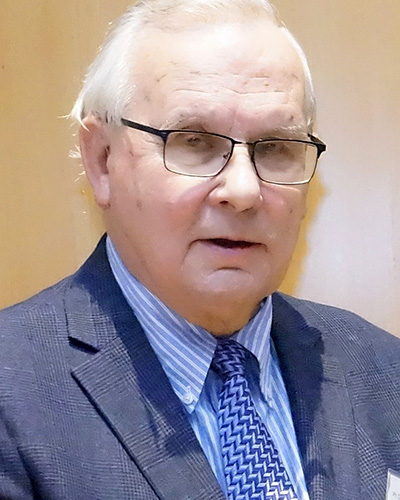In memoriam: Horst Schulz
Horst Schulz, a professor emeritus at City College of New York and at the City University of New York Graduate Center in Manhattan, died Oct. 15 at the age of 88. His work concentrated on increasing our understanding of mitochondrial fatty acid metabolism. He was a member of the American Society for Biochemistry and Molecular Biology since 1971 and served on the editorial boards of several important journals.

Schulz was born Sept. 16, 1936, in Berlin, Germany. He obtained his master’s and doctoral degrees in 1961 and 1964 from the Technical University of Berlin, where he worked with Ferdinand Bohlmann on quinolizidine natural products.
Schulz became a research associate at Cornell University’s Medical College (now Weill Cornell Medical College) where he worked with Vincent du Vigneaud on penicillamine-derived antagonists of oxytocin. After three more years at the Technical University of Berlin, where he published on the biosynthesis of polyacetylenes in plants, he joined the Duke University Medical Center in 1968 to work with Salih J. Wakil, where he published on the mechanisms of fatty acid biosynthesis.
In 1970, Schulz began his tenure at City College and at the CUNY Graduate Center. In 1978 and 1979, he was a visiting associate professor at Cornell University in the laboratory of Ephriam Racker, with whom he published on carnitine transport. He retired as full professor and executive officer of the CUNY Graduate Center’s Biochemistry Doctoral Program in 2007.
Schulz’s research interests concentrated on fatty acid metabolism, on which he published 130 of his 140 papers. His published work has been cited over 5,000 times. His 1991 review on Beta Oxidation of Fatty Acids has been cited 534 times. His 2004 Journal of Biological Chemistry paper, Leaky β-Oxidation of a trans-Fatty Acid, was fundamental to our understanding of how trans fats are harmful to human health.
Schulz mentored 33 doctoral students. The Horst Schulz Award is the highest award given by the CUNY Graduate Center’s Ph.D. program in biochemistry and, since 2008, is awarded annually to the biochemistry doctoral student with the best first-authored paper.
Horst Schulz leaves behind his wife Barbara; his children, Kurt, Karina and Nadja; his brother, Knut; and four grandchildren.
Enjoy reading ASBMB Today?
Become a member to receive the print edition four times a year and the digital edition monthly.
Learn moreGet the latest from ASBMB Today
Enter your email address, and we’ll send you a weekly email with recent articles, interviews and more.
Latest in People
People highlights or most popular articles

Simcox wins SACNAS mentorship award
She was recognized for her sustained excellence in mentorship and was honored at SACNAS’ 2025 National Conference.

From humble beginnings to unlocking lysosomal secrets
Monther Abu–Remaileh will receive the ASBMB’s 2026 Walter A. Shaw Young Investigator Award in Lipid Research at the ASBMB Annual Meeting, March 7-10 in Washington, D.C.

Chemistry meets biology to thwart parasites
Margaret Phillips will receive the Alice and C. C. Wang Award in Molecular Parasitology at the ASBMB Annual Meeting, March 7-10 in Washington, D.C.

ASBMB announces 2026 JBC/Tabor awardees
The seven awardees are first authors of outstanding papers published in 2025 in the Journal of Biological Chemistry.

Decoding how bacteria flip host’s molecular switches
Kim Orth will receive the Earl and Thressa Stadtman Distinguished Scientists Award at the ASBMB Annual Meeting, March 7–10, just outside of Washington, D.C.

Thiam elected to EMBO
He was recognized during the EMBO Members’ Meeting in Heidelberg, Germany, in October.

